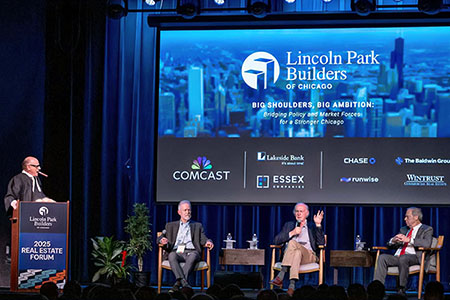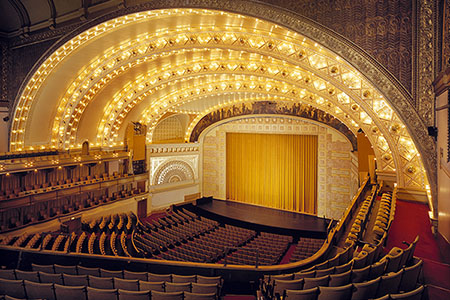MTCA audit shows 2007 legal expenses 149% over budget
Correction: A previous version of this story reported that MTCA treasurer Louvain said at the March 20 MTCA board of directors meeting that reserve funds were estimated at $1.7 million. This is how several people interpreted his report, even after listening to a recording of it. However, the April 2008 MTCA Association Newsletter says more correctly that $1.1 million is in the reserve account, although it says the money is “invested in certificates of deposit,” which conflicts with the audit. -->May 19, 2008 – Legal expenses incurred by Marina Towers Condominium Association last year were 149 percent over budget, according to an audit by an outside CPA firm. Although administrative expenses in general were down seven percent from 2006, and less overall than what was budgeted, legal expenses were over budget more than any other expense. General legal fees for 2007 were budgeted at $15,000 but $37,322 was actually spent. Legal fees related to collections were $38,405, or 54 percent over a budget of $25,000. This was offset by legal fee income of $19,624, which itself was 19 percent more than expected. The general counsel for MTCA is former Illinois state representative Ellis Levin. However, MTCA has hired other lawyers, such as Kovitz Shifrin Nesbit, a Buffalo Grove, Illinois, law firm specializing in condominium and homeowner associations, and Kopka, Pinkus, Dolin & Eads, a law firm with locations in Illinois, Indiana, and Michigan. The audit also revealed 74 percent of MTCA’s $1,048,019 reserve fund is in non-insured investments. $575,000 is in a mutual fund managed by Neuberger Berman, a subsidiary of Lehman Brothers that manages 40 mutual funds. According to Morningstar Inc., the Neuberger Berman family of funds has lost less than one percent of its value year-to-date but has a five-year return on investment of 16.75 percent. $200,000 is invested in the Reaves Utility Income Fund, a relatively new mutual fund investing most of its assets in dividend-paying stocks of utility companies. Year to date, this fund is down 1.63 percent but up 3.58 percent since 2004, according to Google Finance. This conflicts with the April 2008 MTCA Association Newsletter, which says reserve funds are “invested in certificates of deposit.”
Money market funds are insured up to $500,000 in case of a forced liquidation of the fund, but not for market fluctuations or default of the investment. The condo association’s cash balances at financial institutions are FDIC-insured except for $29,424 that is over the $100,000 limit at LaSalle Bank. Other investments include $100,000 in a certificate of deposit with Washington National Bank and $93,499 in a CD with Merril Lynch, both of which matured in 2008. The interest rate and term of the CDs are not detailed in the audit. $17,722 is in a money market account at Merril Lynch, $52,847 is in a money market account at Barrington Bank & Trust, and $50 is in a checking account at Washington Mutual Bank. Assets more, reserves less than estimated The audit was prepared by Condo CPA, a division of Schneider, Cupuro & Associates, Ltd., covering 2006 and 2007. Total assets at the end of 2007 were $1,820,130, up nearly $500,000 from 2006. 42 percent of that was in operating funds and the rest were in reserves. Reserves at the end of 2007 were $1,048,019, which is less than the estimate by MTCA treasurer Dr. Michael Louvain as reported in the April 2008 MTCA Association Newsletter. According to the newsletter, Louvain said that “as of February 29, 2008, MTCA had a total of $1,687,777 cash on hand. Of that amount, $563,508 is deposited in operating accounts maintained by Draper & Kramer. $1,124,269 in the reserve account is invested in certificates of deposit.” Total liabilities were down about 13 percent to $209,563. Where does MTCA make its money? Assessment income, obviously, is the main source. However, it made $262,217 last year from charges to residents for satellite tv service – $252,288 of which was then paid to MDU Communications. MDU currently gets $26.16 per unit per month as part of a five-year contract with MTCA that started in 2005. 
(Above) Chart of 2007 non-assessment revenue for MTCA
“Scavenger reimbursement” is money due MTCA from the City of Chicago for garbage collection. According to Condo CPA, the rebates started when a condominium owner noticed that each unit owner was being billed on their real estate tax bill for garbage removal – even though the city did not provide garbage pickup for buildings with more than four units. To make up for this, the city pays condo associations their actual garbage removal costs, or $75 per unit, whichever is less. However, this has proven to be a burden on the city’s budget and payment delays are common, with some condo associations receiving their rebates three or four years late. The city still owes MTCA $113,034 for unpaid claims in 2006 and 2007. “Glazing recovery” is the fee charged to unit owners to replace a glass window. A small profit is made on each window installed. Overall, actual revenue was 1-2 percent over budget, with the biggest surprises being miscellaneous income, fines, and hospitality rent – all better than expected. But key fees and parking income were each about 40 percent less than budgeted. In 2007, MTCA took in $152,961 more in revenue than it spent. Other expenses over budget Administrative expenses, which include legal fees, totaled $531,248. These expenses also included $195,924 for insurance and $121,620 in management fees paid to Draper and Kramer, which is currently paid $10,287 per month. That will increase in September to $10,441. It does not include the salary of an on-site manager. which is included with payroll expenses. Office rent was $44,588, but MTCA continues to receive a credit of $20,000 per year as part of a 1995 settlement with the commercial developer. That agreement was renewed in October 2005 for another ten years. Utility expenses in 2007 jumped 23 percent from 2006. Payroll expenses were down two percent. Maintenance expenses increased two percent. Operating expenses were up 13 percent. The “life safety” project has cost $897,412 over two years. Critical examinations of the roof, observation deck, and trash chutes have cost $190,219. Balcony renovation and a critical exam of walls cost $91,351 over two years. An elevator recall project cost $21,640. Hallway renovation, $6,909. Improvements to plumbing, $157,884. Improvements to heating, ventilation, and air conditioning cost $143,158. Security improvements cost $14,932. Commercial area improvements, $13,157. Garbage chutes, $7,068. Roof improvements, $5,770. The audit breaks down payroll expenses ($1,005,309), utilities ($445,109), operating expenses ($148,430), maintenance expenses ($516,901), building repairs ($295,626), and recreational/service expenses ($256,991) – of which only operating expenses and building repairs were over budget, by 12 percent and 9 percent, respectively. Operating expenses over budget:
Building repair expenses over budget:
*Thyssen Dover is paid $12,449 per month for elevator maintenance. **Residential’s share of maintenance done to entire complex, such as snow removal.
|














